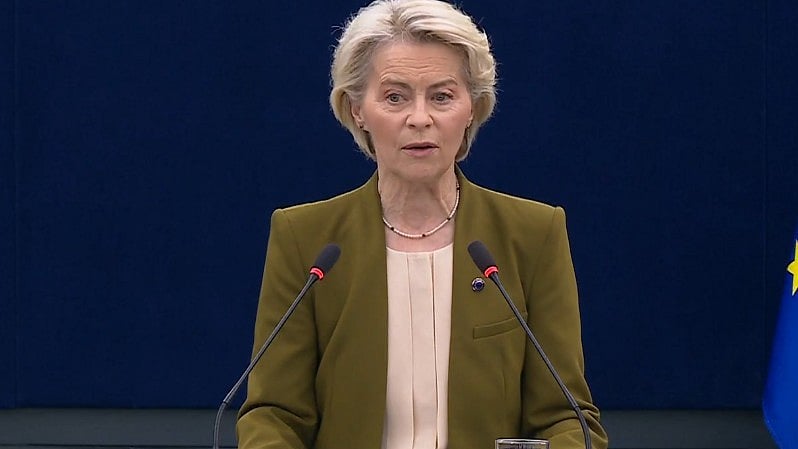World
EU unveils tougher sanctions package against Russia under US pressure
We can confirm the adoption of the 19th sanctions package against Russia, says European Commission spokesperson Paula Pinho

In a decisive move signaling renewed pressure on Moscow, the European Commission has unveiled its 19th sanctions package against Russia, aiming at banks, crypto assets, and energy imports, after a brief delay to coordinate with the United States. The measures now await approval from EU member states.
“We can confirm that the commission has adopted a new package of sanctions against Russia, the 19th package,” said Paula Pinho, chief spokesperson of the European Commission, during a press briefing on Friday, 19 September.
European Commission president Ursula von der Leyen confirmed on social media platform X that the package follows discussions with US President Donald Trump. She highlighted that the sanctions would also aim to accelerate the phase-out of Russian fossil fuel imports, originally scheduled for completion by 1 January 2028.
Currently, about 19 per cent of Europe’s gas supply comes from Russia through the TurkStream pipeline and liquefied natural gas (LNG) shipments. The EU is reportedly considering an expedited ban on Russian LNG. Over the past weekend, Trump urged European allies to halt Russian oil purchases and suggested imposing duties on countries facilitating Russia’s energy exports to weaken its economy.
Published: undefined
The sanctions package had been expected last Friday, but a high-level EU delegation’s trip to Washington delayed its announcement. EU officials emphasised that the measures would be phased carefully to avoid energy price shocks or supply disruptions.
Analysts have called on the EU to pressure Hungary and Slovakia to reduce their reliance on Russian energy, noting Hungary still imports roughly 60 per cent of its oil, while Slovakia depends on Russia for about 75 per cent of its energy needs.
Ukraine has urged swift adoption of the 19th sanctions package. Ukrainian foreign minister Andrii Sybiha stressed the importance of “coordinated steps across the Atlantic” to cut Russia’s resources for the conflict, adding that the package should be even tougher.
Russia, meanwhile, dismissed the sanctions, with foreign ministry spokesperson Maria Zakharova stating that threats from Washington and Brussels “have no effect and will not change anything.” She criticised the EU’s energy push as “suicidal sabotage.”
Since the start of the Russia-Ukraine conflict in 2022, the EU has implemented 18 sanctions packages targeting Russian finance, technology, and energy. Analysts note that the 19th package will test the EU’s internal unity while responding to growing US pressure for faster and broader measures.
With IANS inputs
Published: undefined
Follow us on: Facebook, Twitter, Google News, Instagram
Join our official telegram channel (@nationalherald) and stay updated with the latest headlines
Published: undefined